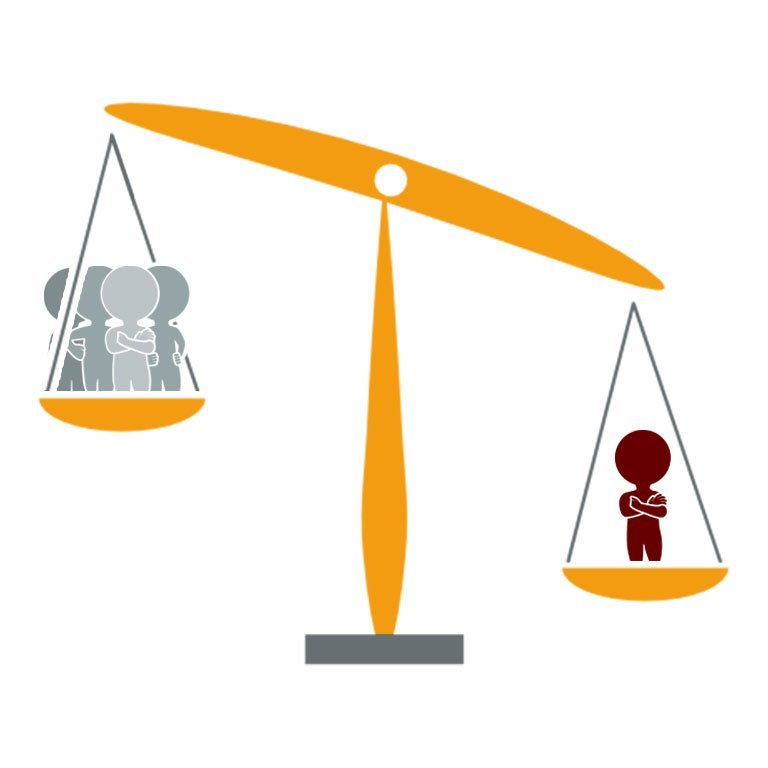Blog Policy & Code Of Conduct
OPINIONS
Any opinions expressed at Adaptistration, except as specifically noted, are those of the individual author and do not necessarily represent the views or policies of the blogmaster.
Authors are not responsible for the accuracy of information supplied by authors or by third-party sources.

COMMENTS
Comments are welcome and moderated by the respective article’s author. Commentary, opinions, and reactions to all comment posts are welcome. The authors, as well as the blogmaster, reserve the right to delete comments to their respective articles deemed uncivil, off-topic, spam, or inappropriate advertisements and/or promotion. Under no conditions will comments be edited.
Readers wishing to leave a comment will need to log in using an active Google user account and that account must include your full name. Anonymous comments will not be published so please note that your Google account profile information will be automatically associated with your comment.

EDITORIAL COMMITMENT
In order to ensure accuracy and that every side to each issue is explored in detail, any individual or person officially representing an organization featured in an Adaptistration article is allowed to submit a response which will be published, unedited.
Responses are limited to 200 words and must address the issues at hand and the individuals and/or organizations must also be willing to maintain an open dialog for continued discussion. In lieu of this option, individuals may opt for submitting a comment, which is subject to the terms above.

CODE OF CONDUCT
Adaptistration is committed to providing content that promotes public enlightenment by way of principles rooted in the exchange of information that is accurate, fair, and thorough.
To that end, Adaptistration abides by the Society of Professional Journalists Code of Ethics, which serves as a guide for providing insight that not only benefits from an insider’s knowledge but helps establish responsibility for the content published via the following principles (items with emphasis are those the author feels are especially applicable for culture blogging):
SEEK TRUTH AND REPORT IT
Ethical journalism should be accurate and fair. Journalists should be honest and courageous in gathering, reporting and interpreting information.
Journalists should:
- Take responsibility for the accuracy of their work. Verify information before releasing it. Use original sources whenever possible.
- Remember that neither speed nor format excuses inaccuracy.
- Provide context. Take special care not to misrepresent or oversimplify in promoting, previewing or summarizing a story.
- Gather, update and correct information throughout the life of a news story.
- Be cautious when making promises, but keep the promises they make.
- Identify sources clearly. The public is entitled to as much information as possible to judge the reliability and motivations of sources.
- Consider sources’ motives before promising anonymity. Reserve anonymity for sources who may face danger, retribution or other harm, and have information that cannot be obtained elsewhere. Explain why anonymity was granted.
- Diligently seek subjects of news coverage to allow them to respond to criticism or allegations of wrongdoing.
- Avoid undercover or other surreptitious methods of gathering information unless traditional, open methods will not yield information vital to the public.
- Be vigilant and courageous about holding those with power accountable. Give voice to the voiceless.
- Support the open and civil exchange of views, even views they find repugnant.
- Recognize a special obligation to serve as watchdogs over public affairs and government. Seek to ensure that the public’s business is conducted in the open, and that public records are open to all.
- Provide access to source material when it is relevant and appropriate.
- Boldly tell the story of the diversity and magnitude of the human experience. Seek sources whose voices we seldom hear.
- Avoid stereotyping. Journalists should examine the ways their values and experiences may shape their reporting.
- Label advocacy and commentary.
- Never deliberately distort facts or context, including visual information. Clearly label illustrations and re-enactments.
- Never plagiarize. Always attribute.
MINIMIZE HARM
Ethical journalism treats sources, subjects, colleagues and members of the public as human beings deserving of respect.
Journalists should:
- Balance the public’s need for information against potential harm or discomfort. Pursuit of the news is not a license for arrogance or undue intrusiveness.
- Show compassion for those who may be affected by news coverage. Use heightened sensitivity when dealing with juveniles, victims of sex crimes, and sources or subjects who are inexperienced or unable to give consent. Consider cultural differences in approach and treatment.
- Recognize that legal access to information differs from an ethical justification to publish or broadcast.
- Realize that private people have a greater right to control information about themselves than public figures and others who seek power, influence or attention. Weigh the consequences of publishing or broadcasting personal information.
- Avoid pandering to lurid curiosity, even if others do.
- Balance a suspect’s right to a fair trial with the public’s right to know. Consider the implications of identifying criminal suspects before they face legal charges.
- Consider the long-term implications of the extended reach and permanence of publication. Provide updated and more complete information as appropriate.
ACT INDEPENDENTLY
The highest and primary obligation of ethical journalism is to serve the public.
Journalists should:
- Avoid conflicts of interest, real or perceived. Disclose unavoidable conflicts.
- Refuse gifts, favors, fees, free travel and special treatment, and avoid political and other outside activities that may compromise integrity or impartiality, or may damage credibility.
- Be wary of sources offering information for favors or money; do not pay for access to news. Identify content provided by outside sources, whether paid or not.
- Deny favored treatment to advertisers, donors or any other special interests, and resist internal and external pressure to influence coverage.
- Distinguish news from advertising and shun hybrids that blur the lines between the two. Prominently label sponsored content.
BE ACCOUNTABLE AND TRANSPARENT
Ethical journalism means taking responsibility for one’s work and explaining one’s decisions to the public.
Journalists should:
- Explain ethical choices and processes to audiences. Encourage a civil dialogue with the public about journalistic practices, coverage and news content.
- Respond quickly to questions about accuracy, clarity and fairness.
- Acknowledge mistakes and correct them promptly and prominently. Explain corrections and clarifications carefully and clearly.
- Expose unethical conduct in journalism, including within their organizations.
- Abide by the same high standards they expect of others.

